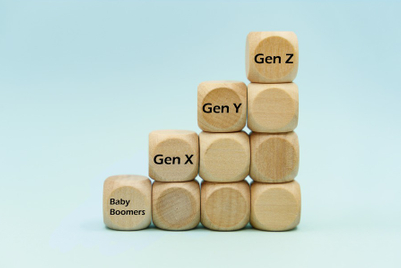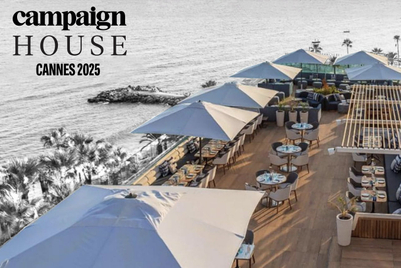
| PARTNER CONTENT |
Younger Asian adults are significantly likely to view career achievement as a major life milestone than their counterparts in other parts of the world, but Zenith’s research shows their attitudes are changing rapidly to encompass “enriched experience” as a core life goal.
The media agency has found 45 percent of Asians aged 18 to 34 see building a career as a mark of adulthood, topped in importance only by financial independence (60 percent), being a decision-maker (50 percent) and being a problem-solver (47 percent).
Just 21 percent feel the same way about moving out of their parents’ home—a stark contrast to the 45 percent of respondents in the rest of the world who believe flitting the coop is an essential part of becoming a grown-up.

The findings are based on a major survey of younger consumers across the region. The study is linked to a global work, and is based on 6,021 interviews with young adults aged 18 to 34 from 11 countries, including Australia, China, India, Indonesia, Malaysia and South Korea.
Zenith has tagged these Asian millennials the ‘Open Generation’ due to the ease with which they combine old traditions, such as marriage and family obligations, with more modern pursuits such as personal freedom, financial independence and building life experiences. The agency has found that this generation tend to value journeys of discovery, and are more comfortable than their predecessors with taking risks in order to expand their horizons.
The research finds a similar link between the group’s attitudes to careers and happiness as the agency’s earlier findings on finance and shopping: a sense of control is crucial to feeling they are leading fulfilled lives.

Across Asia, the Open Generation rank career as their third-most important life concern, with 65 percent of respondents saying it is of “high importance”, behind health and wellbeing (87 percent) and financial stability (79 percent). Career comes well ahead of the next contenders: formal education (51 percent), following your dreams and passions (47 percent), and even having a family (46 percent).
But the survey also found wide divergence in attitudes in different countries and regions across Asia.
In India, career topped the list of concerns at 85 percent, seven points ahead of both financial stability and health and wellbeing. Australians proved to have starkly different priorities: the importance of a career, at just 55 percent, ranked fifth in the country, beaten out by health (88 percent) and financial stability (84 percent), plus being in a loving relationship (67 percent) and following your dreams (59 percent).

“We talk about young adults in the region as though they are all the same, where clearly they are not,” says Howard Wincott, research director at Zenith. “The sense of control varies in different markets, but there is the same correlation with happiness. Those who feel they have a high sense of control of their career are 62 percent happier than those who feel they do not.”
He adds that the contrast of different markets reveals “a different psyche altogether”, and a mark of evolving priorities—particularly in the more advanced economies in the region.
“I read into this a view that having a balanced life is as important to this generation as it was in the past,” Wincott says. “But I think that for the younger generation, they just have a different way of thinking about that work-life balance. People are looking for the maximum of flexibility in their career.”

Ng Tsuey Jen, Zenith’s chief talent officer, Southeast Asia, says younger professionals’ life priorities are changing across the region, and this is prompting employers to work harder to retain their the best staff. Where previous generations tended to be happy to find a secure job for life, younger professionals today need a sense of connection to stay with the same company long-term.
“Young people these days want to be associated with a brand that is hip, that is a fun place to work,” she says. “All of them want to work for Google.”
The challenge for everyone who isn’t a global internet giant, she adds, is how to do that without incurring excessive costs—particularly given the difficulty in proving the precise RoI of employee satisfaction to head office. However, she points out there are ways to achieve this relatively economically.
“One of the things that stands out in our research on the Open Generation is that health and well-being is quite high on their priorities,” Ng says, explaining that offering small perks such as subsidised gym memberships, providing daily breakfasts and other healthy snacks, or holding occasional yoga lessons can develop a health-conscious company culture without breaking the bank.

More than simply looking for balance, this generation looks for “work-life integration”, Ng adds, and employers should explore ways to enable staff to “bring their personal passions into the workplace”.
While Zenith has a longstanding “curiousity fund” to support employees who want to take self-improvement courses—such as languages—the agency is now taking this one step further in its Singapore office. Ng says the idea is to encourage staff to form interest groups on their own initiative, providing them with a small amount of funding to get their projects off the ground—whether that passion is for photography, Korean dramas or musical instruments.
“It’s really moving towards creating a sense of community,” Ng explains.



.jpg&h=334&w=500&q=100&v=20250320&c=1)

+(900+x+600+px)+(3).png&h=334&w=500&q=100&v=20250320&c=1)




.jpg&h=334&w=500&q=100&v=20250320&c=1)


.jpg&h=268&w=401&q=100&v=20250320&c=1)



.jpg&h=268&w=401&q=100&v=20250320&c=1)

